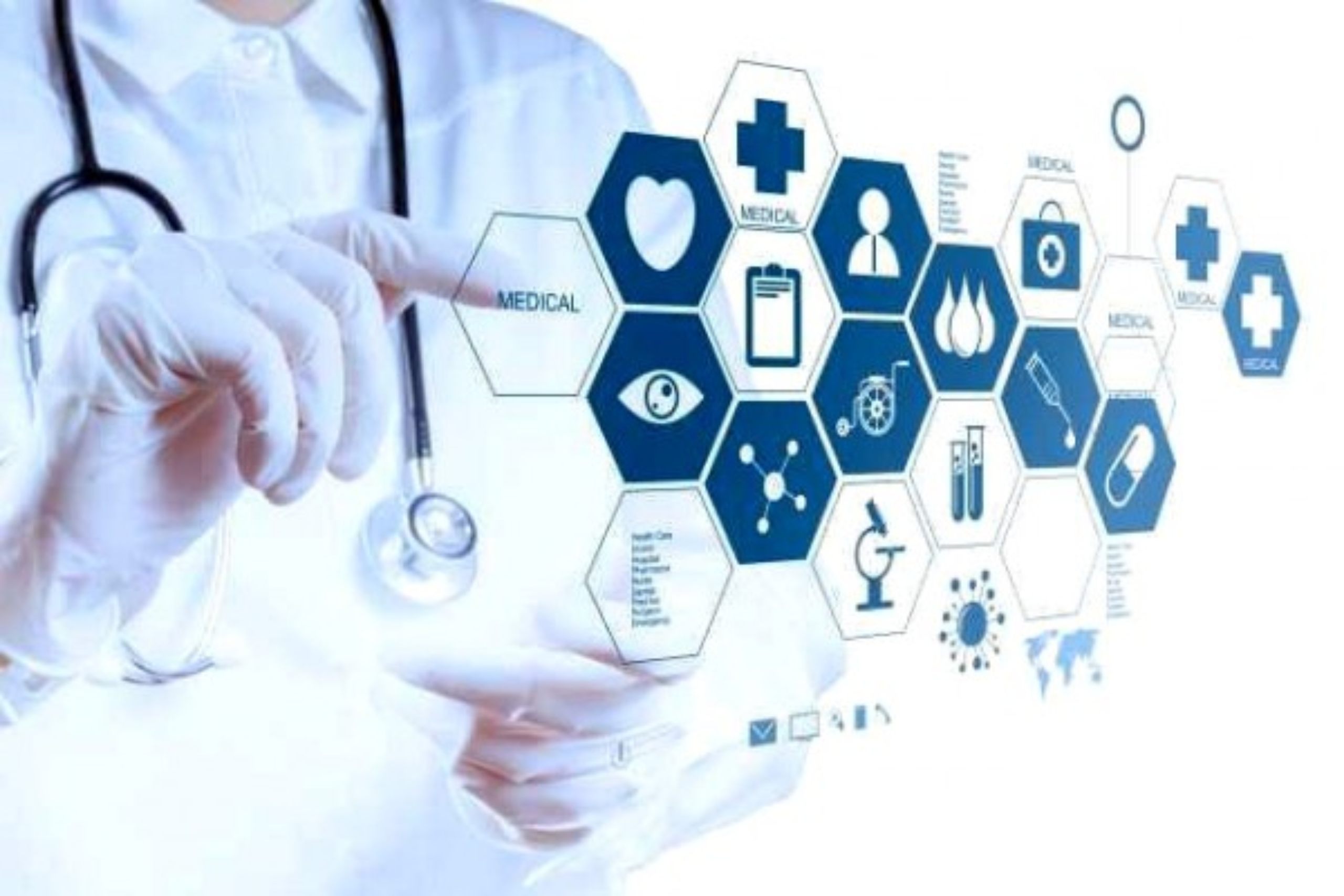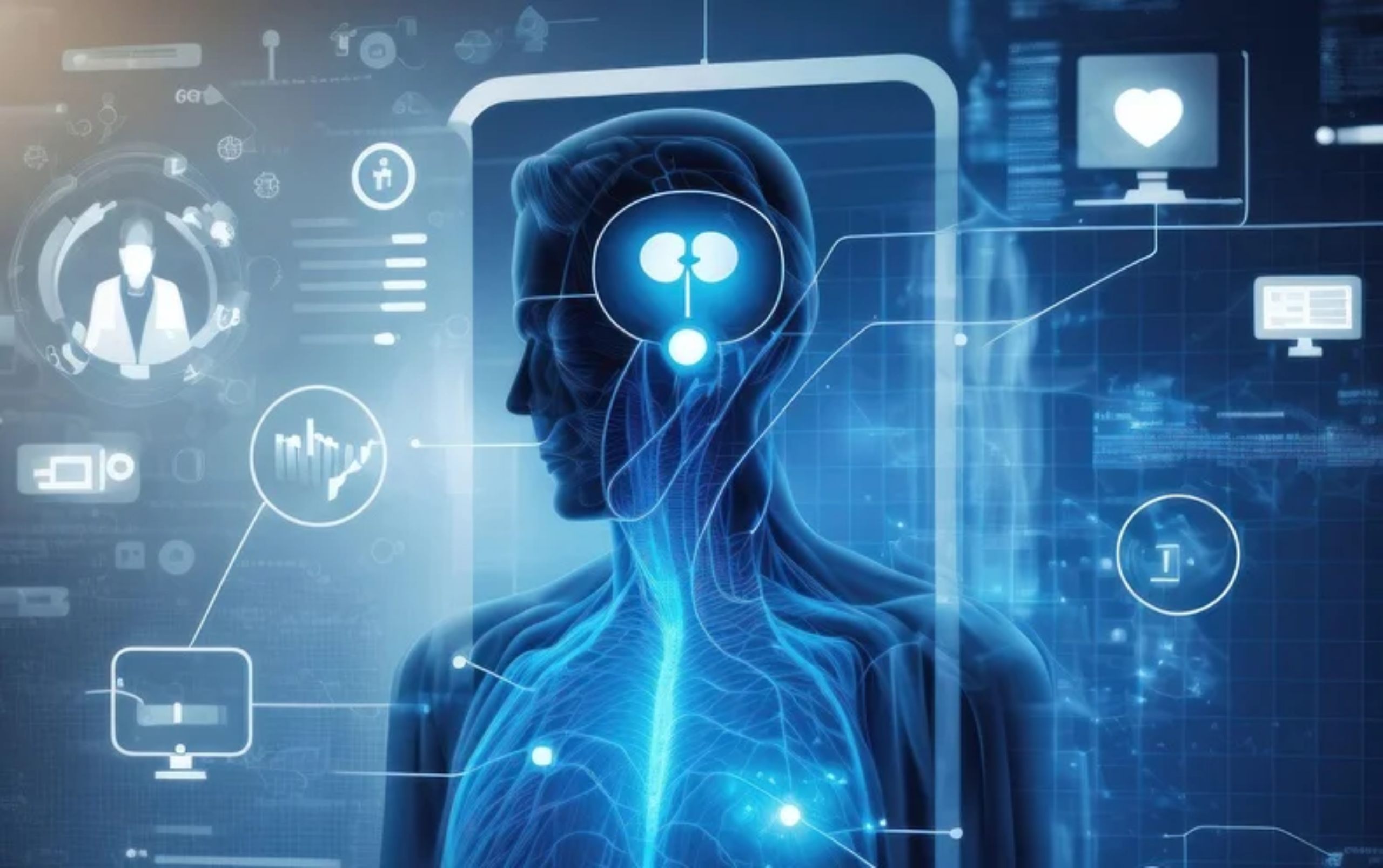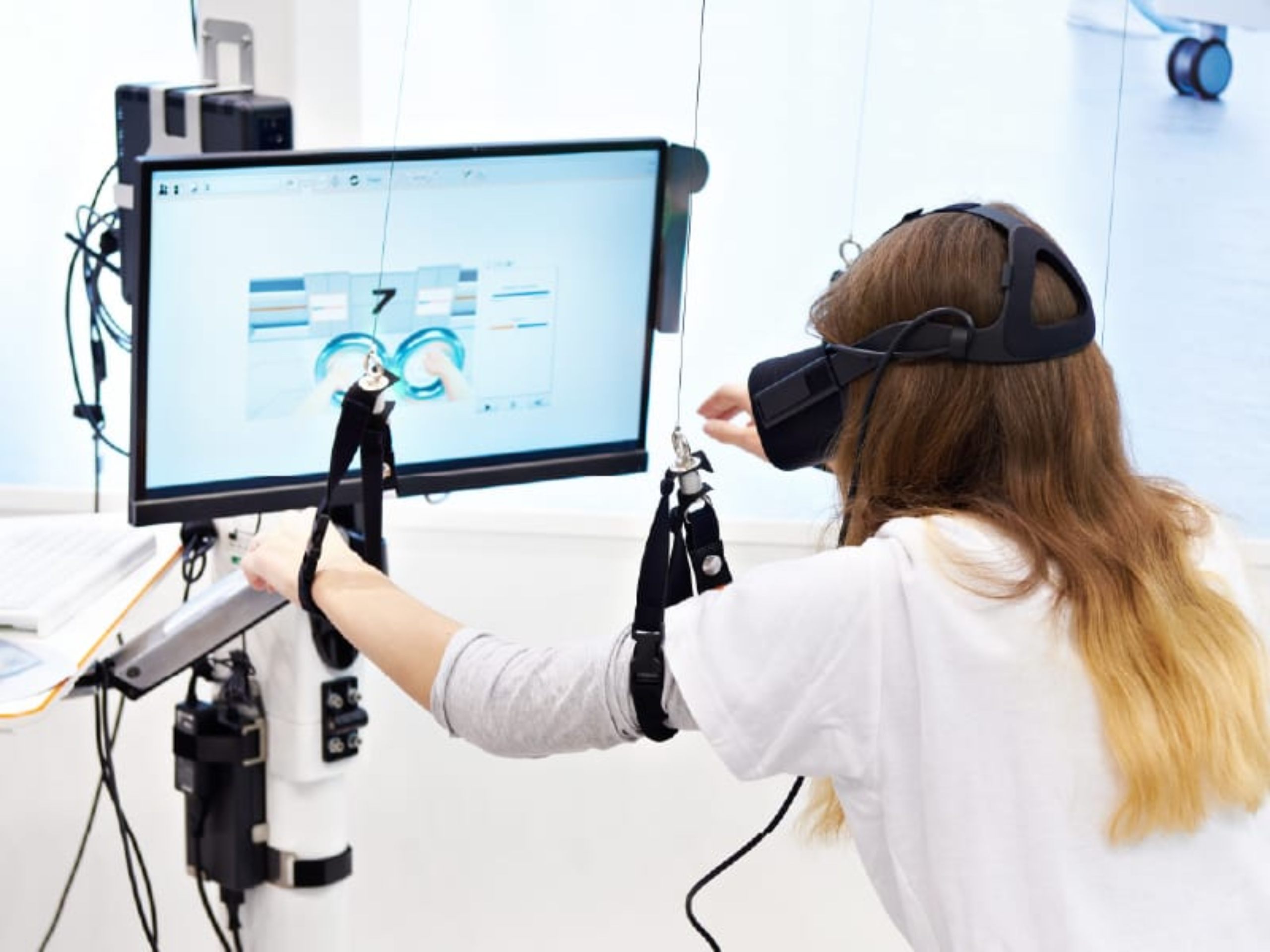In an era defined by technological advancement, the realm of healthcare is undergoing a transformative revolution, and at its epicenter lies the concept of “Digital Health.” This groundbreaking approach represents the convergence of cutting-edge technologies and healthcare, promising to enhance patient care, streamline medical processes, and revolutionize the way we approach well-being. Digital Health encompasses a wide spectrum of innovations, from telemedicine and health monitoring apps to artificial intelligence-driven diagnostics and immersive virtual reality therapy.
This introductory exploration delves into the dynamic world of digital health, shedding light on its myriad facets, applications, and the promising future it paints for healthcare delivery and patient empowerment. Join us on a journey through the digital corridors of health, where innovation knows no bounds, and the future of medicine takes shape before our eyes.
Table of Contents
ToggleRemote Medical Consultations
Bridging the Gap: Accessing Healthcare from Anywhere
Telehealth, also known as telemedicine, has become a lifeline for patients worldwide, providing access to medical consultations without geographical limitations.
What Is Telehealth?
Defining telehealth and highlighting its significance, particularly in improving healthcare accessibility, especially in underserved areas.
The Telehealth Evolution
Exploring the historical development of telehealth and the technologies that enable remote consultations, including video conferencing and secure communication platforms.
Benefits and Limitations
Discussing the advantages of telehealth, such as convenience and reduced healthcare costs, while acknowledging limitations and challenges in its implementation.

Health Monitoring Apps and Wearables
Your Health in Your Hands: The Rise of Digital Health Tools
Mobile apps and wearable devices are empowering individuals to take an active role in monitoring and managing their health.
The Digital Health Revolution
Exploring the proliferation of health and wellness apps and wearables, highlighting their role in preventive care and health tracking.
Popular Health Apps and Devices
Showcasing notable health apps and wearables, from fitness trackers and smartwatches to apps for chronic disease management and mental health.
Data Security and Privacy
Addressing concerns related to the privacy and security of health data collected through apps and wearables and the importance of ethical data usage.

AI in Healthcare Diagnostics
The Future of Precision Medicine: AI-Powered Diagnostics
Artificial intelligence is transforming healthcare diagnostics by analyzing vast datasets and providing accurate and timely insights.
The Role of AI in Healthcare
Explaining how AI technologies like machine learning and deep learning are revolutionizing medical diagnostics, immune system and decision-making.
AI Applications
Highlighting real-world examples of AI applications in radiology, pathology, disease prediction, and treatment recommendations.
Ethical Considerations
Examining ethical challenges and considerations surrounding AI in healthcare, including bias in algorithms and patient data protection.

Virtual Reality Therapy and Rehabilitation
Healing in a Virtual World: VR’s Impact on Healthcare
Virtual reality therapy and rehabilitation are changing the way patients recover from injuries, manage pain, and address mental health challenges.
The Power of Virtual Reality
Exploring the immersive world of VR therapy and rehabilitation and its effectiveness in treating conditions like post-traumatic stress disorder (PTSD) and chronic pain.
VR in Mental Health
Discussing how VR is used in mental health treatment, such as exposure therapy for anxiety disorders and cognitive-behavioral interventions.
Future Possibilities
Envisioning the future of virtual reality in healthcare, including its potential for medical training, pain management, and patient education.

Conclusion
Telehealth and Digital Health are not merely technological trends; they are revolutionary forces reshaping the healthcare landscape. From remote medical consultations that transcend geographical barriers to health monitoring apps and wearables that empower individuals to take control of their well-being, these innovations offer new avenues for patient engagement and care delivery. The integration of AI in healthcare diagnostics promises unprecedented precision and speed, while virtual reality therapy and rehabilitation are redefining how we approach mental health and recovery.
As we continue down this digital healthcare journey, it’s crucial to consider the ethical and privacy implications, ensure equitable access to these technologies, and remain vigilant in safeguarding patient data. The future of medicine is here, and it’s an exciting landscape of possibilities that prioritize patient-centric care and improved health outcomes. Embrace the digital revolution in healthcare, and together, we can chart a course towards a healthier, more accessible, and compassionate healthcare ecosystem.
Frequently Ask Questions
1. What is personal health?
- Personal health refers to an individual’s overall well-being, encompassing physical, mental, emotional, and social aspects. It involves maintaining a healthy lifestyle, making choices that promote good health, and seeking medical care when needed.
2. What is the meaning of digital health?
- Digital health refers to the use of digital technologies, such as mobile apps, wearable devices, telemedicine, and electronic health records, to improve healthcare delivery, patient engagement, and health outcomes.
3. Why is sustainability good for health?
- Sustainability practices, such as reducing environmental pollution and promoting clean energy, can have a positive impact on health by reducing exposure to harmful substances and preventing climate-related health problems.
4. What is data and digital health?
- Data in digital health refers to the collection, analysis, and utilization of health-related information using digital technologies. It includes electronic health records, patient data, health monitoring data, and more.
5. What are the 4 pillars of ethics?
- The four pillars of ethics in healthcare are autonomy (respect for a patient’s right to make decisions about their own health), beneficence (the obligation to do good for the patient), non-maleficence (the obligation to avoid harm), and justice (fair and equal treatment for all patients).
6. Why is health important?
- Health is vital because it directly impacts an individual’s quality of life, productivity, and overall well-being. Good health enables people to pursue their goals, enjoy life, and contribute to society.
7. What are the 7 principles of health?
- While there are various principles related to health, the seven dimensions of health often considered are physical, emotional, social, intellectual, environmental, occupational, and spiritual health.
8. What are the digital tools in primary care?
- Digital tools in primary care include electronic health records (EHRs), telehealth platforms, mobile health apps, remote monitoring devices, and patient portals, among others, which help improve healthcare access and efficiency.
9. How can we improve our health in the world?
- Improving global health requires a combination of efforts, including access to healthcare, vaccination programs, sanitation, clean water, nutrition, education, poverty reduction, and addressing social determinants of health.
10. Why is it called sustainable?
Sustainability refers to practices that can be maintained over the long term without harming future generations or depleting resources. It is called “sustainable” because it aims to ensure that environmental, social, and economic systems remain viable over time.
11. What are the principles of digital health?
Principles of digital health include interoperability (the ability of systems to exchange and use data), patient-centeredness, security and privacy, evidence-based practice, and continuous improvement.
12. What are the 4 principles of health?
The four principles of health often cited are physical health, mental health, emotional health, and social health. These aspects collectively contribute to an individual’s overall well-being.
13. What is Alma Ata PHC?
Alma Ata PHC refers to the Alma-Ata Declaration, a historic international conference held in 1978 where the concept of Primary Health Care (PHC) was endorsed. PHC emphasizes essential healthcare services, community involvement, and equitable access to healthcare as key elements of healthcare systems.
14. What are the 5 principles of health?
The five principles of health commonly considered are physical fitness, proper nutrition, adequate rest, stress management, and avoiding harmful substances.
15. What is primary health technology?
Primary health technology refers to digital tools, devices, and technologies used in primary healthcare settings to improve patient care, streamline processes, and enhance access to healthcare services.
16. What is a healthy lifestyle?
A healthy lifestyle involves making choices that promote well-being, including regular exercise, a balanced diet, adequate sleep, stress management, and avoiding harmful habits like smoking and excessive alcohol consumption.
17. What is called sustainable?
Sustainability refers to practices and processes that can be maintained over time without causing harm to the environment, society, or future generations. It is often associated with responsible resource management and reduced environmental impact.
18. What is sustainable health?
Sustainable health refers to the concept of maintaining and promoting health in a way that is environmentally responsible, economically viable, and equitable for all members of society.
19. What is an example of digital health?
An example of digital health is a mobile health app that allows users to track their fitness, monitor vital signs, receive medical advice, or manage chronic conditions remotely using their smartphones or wearable devices.
20. What is the SDG for health?
The Sustainable Development Goal (SDG) related to health is SDG 3: “Ensure healthy lives and promote well-being for all at all ages.” It encompasses various targets, including reducing maternal mortality, ending preventable deaths of newborns and children, and achieving universal health coverage.
21. What are factors affecting health?
Factors affecting health include genetics, lifestyle choices, access to healthcare, environmental conditions, social determinants (e.g., income, education, and social support), and healthcare policies.
22. What is another word for digital health?
Another term for digital health is “eHealth,” which also encompasses the use of electronic technologies in healthcare delivery and health-related services.
More Stories
From Fear to Freedom: Understanding and Managing Panic Attacks
What Are Panic Attacks? Panic attacks are sudden periods of intense fear or discomfort that peak within minutes. These episodes...
Unlocking a New You: The Complete Guide to Hair Transplant in Dubai
In recent years, Dubai has become a hotspot for medical tourism, particularly for cosmetic procedures. Among these, hair transplants have...
Batana Oil Benefits: A Hidden Gem for Hair and Skin Care
Batana oil, often referred to as "liquid gold" for hair and skin, is one of nature’s best-kept secrets. Extracted from...
How to Choose the Best Steroid Cycles for Cutting Safely and Effectively
The key to getting ultra lean is the best steroid cycles for cutting. The cutting phase is one at which...
Revolutionizing Addiction Recovery: The Rise of Virtual Suboxone Treatment
Addiction treatment has long been a challenge for both patients and providers, requiring access to specialized care and consistent support....
Optimize Your Wellness with Health Hub Singapore: The Ultimate Health Resource
In a rapidly evolving world where health and well-being are increasingly prioritized, having access to a trusted source of quality...


